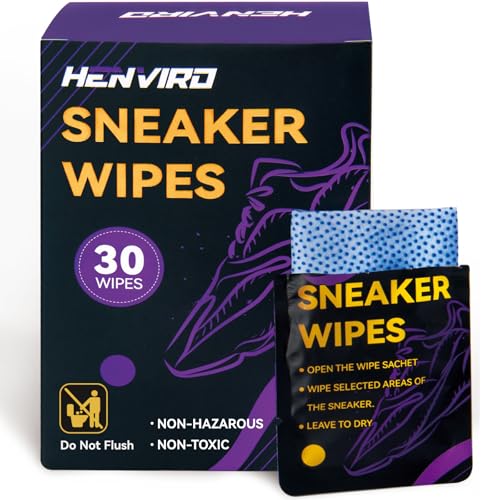When you’re spending eight to twelve hours on your feet, tackling everything from office buildings to residential homes, your choice of footwear can make or break your workday. The best shoes for cleaners aren’t just about comfort—they’re about safety, durability, and maintaining your health throughout long shifts. Let’s explore everything you need to know about selecting the perfect cleaning shoes for your professional needs.
Why Specialized Cleaning Footwear Matters
Professional cleaning work presents unique challenges that regular shoes simply can’t handle. You’re constantly moving between wet and dry surfaces, encountering chemical spills, and navigating potentially hazardous environments. The right cleaning footwear serves as your first line of defense against workplace injuries while ensuring you can perform your duties effectively.
Slip-resistant shoes are absolutely essential in the cleaning industry. According to workplace safety statistics, slips and falls account for a significant percentage of cleaning-related injuries. When you’re mopping floors, cleaning bathrooms, or working around freshly waxed surfaces, non-slip soles become a critical safety feature rather than a luxury.
Essential Features in Professional Cleaning Shoes
Slip-Resistant Technology
The most crucial feature in any cleaning shoe is superior traction. Look for shoes with deep tread patterns and rubber compounds specifically designed for wet surfaces. Many manufacturers use specialized slip-resistant outsoles that meet or exceed ASTM standards for workplace safety.
Waterproof and Chemical-Resistant Materials
Cleaning professionals regularly encounter various liquids, from basic water to industrial-strength chemicals. Waterproof cleaning shoes protect your feet from moisture while chemical-resistant materials prevent damage from cleaning solutions. Leather, synthetic materials, and treated fabrics offer different levels of protection depending on your specific work environment.
Comfort and Support Features
Long shifts demand exceptional comfort. Arch support, cushioned insoles, and proper heel support become essential when you’re on your feet all day. Memory foam insoles and shock-absorbing midsoles can significantly reduce foot fatigue and prevent long-term issues like plantar fasciitis.
Top Shoe Types for Cleaning Professionals
Athletic-Style Work Shoes
Many cleaning professionals prefer athletic-style work shoes because they combine the comfort of sneakers with workplace safety features. These shoes typically offer excellent breathability, lightweight construction, and modern slip-resistant technology.
Traditional Work Boots
For heavier-duty cleaning tasks or industrial environments, work boots provide additional ankle support and protection. Steel-toe or composite-toe options offer extra safety in environments with potential impact hazards.
Slip-On Clogs and Mules
Easy to clean and quick to put on, slip-on styles are popular among cleaning staff who need to change footwear frequently. Many feature removable, washable insoles and antimicrobial treatments to prevent odor buildup.
Specialized Kitchen and Healthcare Shoes
If you work in food service or healthcare cleaning, specialized shoes designed for these environments offer additional features like closed-toe designs, easy sanitization, and compliance with industry hygiene standards.
Maintaining Your Cleaning Shoes for Maximum Longevity
Proper shoe care extends the life of your investment and maintains safety features. Regular cleaning removes debris that can affect traction, while proper drying prevents bacterial growth and material degradation. Rotate between two pairs when possible to allow complete drying between shifts.
Consider replacing insoles regularly, as they tend to wear out faster than the shoe itself. Quality replacement insoles can refresh tired shoes and maintain comfort levels throughout their lifespan.
Budget Considerations and Value
While it might be tempting to choose the cheapest option, investing in quality cleaning footwear pays dividends in comfort, safety, and durability. Calculate the cost per wear rather than just the upfront price. A $100 pair that lasts two years provides better value than a $40 pair you need to replace every six months.
Many employers recognize the importance of proper safety footwear and may provide allowances or reimbursements for approved shoes. Check with your employer about available programs before making your purchase.
Frequently Asked Questions
How often should cleaning professionals replace their work shoes?
Most cleaning shoes should be replaced every 6-12 months, depending on usage intensity and work environment. Signs it’s time for new shoes include worn tread patterns, compressed cushioning, or visible damage to waterproof materials.
Are steel-toe shoes necessary for all cleaning jobs?
Steel-toe shoes aren’t required for all cleaning positions but are recommended for industrial cleaning, construction site cleaning, or any environment with potential falling object hazards.
Can I use regular athletic shoes for cleaning work?
While regular athletic shoes might seem comfortable, they typically lack the slip-resistance, waterproofing, and durability needed for professional cleaning work. Specialized work shoes are a worthwhile investment for safety and longevity.
What’s the difference between slip-resistant and non-slip shoes?
Slip-resistant shoes are tested and rated for their traction performance, while “non-slip” is often a marketing term without specific standards. Look for shoes that meet ASTM or similar safety standards for reliable performance.
How do I clean and maintain my work shoes?
Remove debris daily, allow shoes to dry completely between wears, and clean with appropriate materials for your shoe type. Leather shoes need different care than synthetic materials, so follow manufacturer guidelines.
The right shoes for cleaners combine safety, comfort, and durability to support you throughout demanding workdays. By understanding your specific needs and investing in quality footwear, you’re protecting both your immediate comfort and long-term foot health while maintaining the professional standards your work demands.












